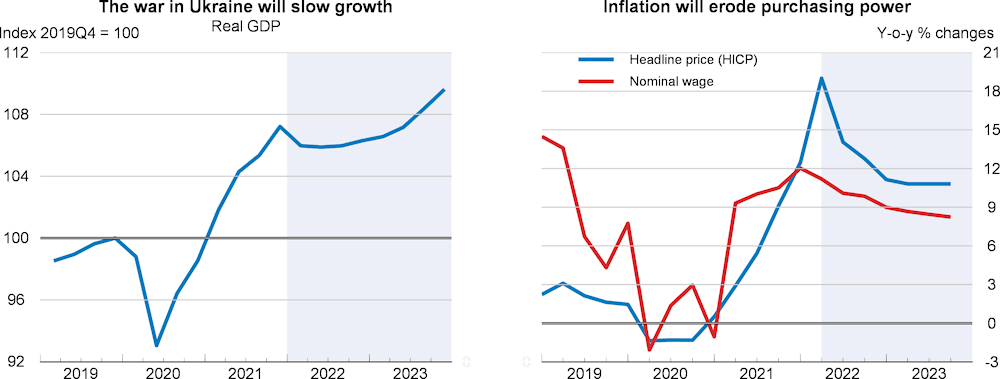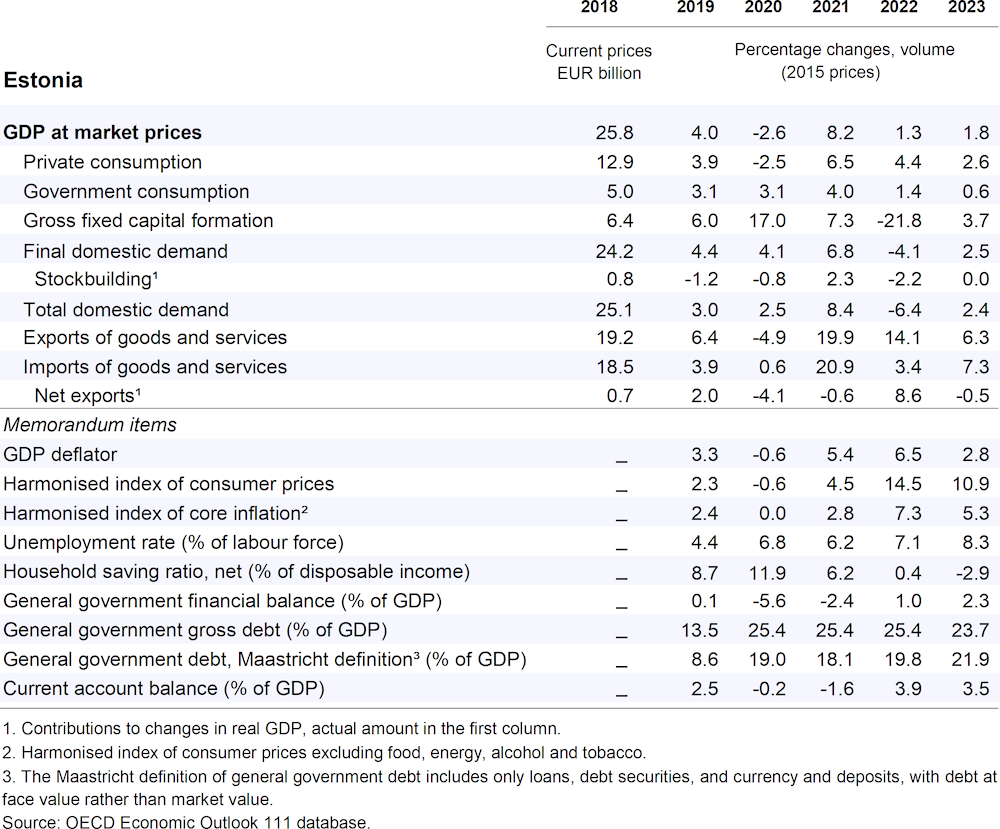After a very robust expansion in 2021, GDP growth is expected to slow to 1.3% in 2022 and 1.8% in 2023, owing to the war in Ukraine. Household purchasing power is suffering as inflation far outpasses nominal wage growth. Export opportunities are expected to shrink, which, together with reduced confidence, will weaken investment. The gradual drawdown of savings accumulated during the pandemic and in individual pension funds, as well as the inflow of EU funds, will support the economy. Unemployment is expected to increase, as a large number of refugees are entering the country and not all of them are likely to find jobs immediately.
Given already high inflation, additional public spending should be focused only on assistance to refugees, defence and infrastructure developments that increase energy security. Support for low-income households to mitigate the negative impact of inflation on essential consumption needs should remain narrowly targeted. The influx of refugees can benefit Estonia’s tight labour market and alleviate long-standing skills shortages issues, but this will require stepping-up activation policies and making language courses more widely available.

